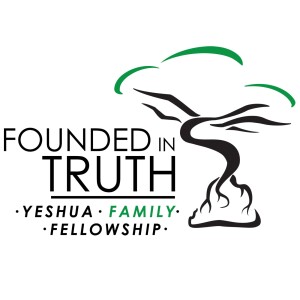
Saturday Dec 28, 2019
Hanukkah Conference 2019 - Why The Maccabees Failed + The Oil of Anointing
Hanukkah Conference 2019 - Why The Maccabees Failed + The Oil of Anointing

During a Bible teaching at the Founded in Truth Fellowship Hanukkah conference in 2019, Matthew Vander Els explored the multifaceted significance of Hanukkah, connecting it to the concept of the oil of anointing, the pursuit of wisdom, and the historical narrative of the Maccabees and their subsequent failure. The teaching began with an acknowledgment of the blessings of seeing the next generation and gratitude for the conference organizers.
The speaker then transitioned to the theme of Hanukkah, highlighting the dual aspects of the oil story and the military campaign. The focus was placed on the oil of anointing, which has deeper meanings than just joy or gladness. The oil originates from fruit-bearing trees, particularly olives, and the first pressing of these olives was used for the menorah in the Temple and for the anointing of the king. The menorah itself is presented as an interesting symbol that can be traced back to the Garden in Eden, understood not just as a place but as part of temple and palace complexes in the ancient world, where kings were considered gardeners responsible for providing for their subjects.
Dennis Prager's observation about the nation lacking wisdom and common sense was cited, linking this to the biblical idea that the fear of the Lord is the beginning of wisdom. The teaching emphasized that when leaders do not fear God, wisdom and common sense are likely absent. This led to a discussion on the nature of wisdom, drawing from Proverbs, which states, "The fear of the Lord is the beginning of wisdom." Wisdom is not guaranteed by religious conviction alone, as Dennis Prager noted. The Holy Spirit and wisdom were presented as potentially synonymous, with wisdom being crucial for making good choices that lead to prosperous lives and the raising of a wise generation. In the ancient world, wisdom was associated with the created order in Genesis, where God's speaking forth creation was an act of wisdom. Wisdom was also linked to craftsmanship, with the building of a house, as seen in Genesis 1 and Proverbs 4:1, associated with creating a space for wisdom to operate.
Wisdom is further described as producing order, while folly leads to chaos, both in personal lives and in the governance of nations. The nation's restoration is tied to its people exercising wisdom. The contrast between wisdom bringing forth life and folly bringing forth death is highlighted, drawing from Proverbs with the imagery of the bride and the harlot. The concept of wisdom being essential for building is illustrated by the builders of the tabernacle, Bezalel and Oholiab, who were filled with wisdom, knowledge, and understanding. King Solomon's foreman, Hiram, also possessed these qualities. Even Yeshua (Jesus) was described as filled with wisdom. God himself is seen as the master craftsman who built the cosmos. Yeshua's mission is not just individual salvation but the restoration of the entire cosmos, bringing order through wisdom, knowledge, and understanding. Wisdom is defined as the art of achieving a successful life through problem-solving, a daily necessity in business, family, and community. Guidance from the Spirit and wisdom helps in making these crucial choices.
For more Bible Teachings, click the link.
Applications for Everyday Life:
- Maintain a clear and long-term vision in all areas of life, not settling for short-term victories.
- Persevere through challenges and setbacks, viewing them as opportunities to learn and grow rather than reasons to quit.
- Cultivate wisdom through seeking God and His Word, recognizing that the fear of the Lord is the beginning of wisdom.
- Make wise choices daily, understanding that every decision has consequences, both personally and in the broader community.
- Value the wisdom and experience of elders and those who have walked the path before you.
- Be an agent of good governance in your personal sphere of influence, reflecting the values of God's kingdom.
- Resist the pressures of the world that seek to undermine your faith and commitment to God's principles.
- Embrace discipline and self-control as essential tools for achieving long-term goals, whether spiritual, personal, or professional.
- Recognize that true failure lies in giving up, not in encountering difficulties.
- Continuously evaluate your "finish line," ensuring it aligns with God's calling and potential for your life.
References:
- Proverbs
- Genesis 1 Genesis 1
- Proverbs 4:1 Proverbs 4:1
- Revelation 22:2 Revelation 22:2
- Ezekiel 47:12 Ezekiel 47:12
- 1 Maccabees 2:48 1 Maccabees 2:48
- 2 Maccabees 10:5 2 Maccabees 10:5
- 1 Kings 8 1 Kings 8
- Ezra 3 Ezra 3
- 2 Maccabees 1:18 2 Maccabees 1:18
- 1 Corinthians 9:24-27 1 Corinthians 9:24-27
- Hebrews 12:1-2 Hebrews 12:1-2
- Matthew 24 Matthew 24
Books and Resources Mentioned:
Note: This article contains affiliate links.
No comments yet. Be the first to say something!